Discover Krakow
city of kings * city of culture * city of science * city for young
Kraków is the historical capital of Poland, and as such, it is deeply rooted in the Polish tradition and culture. Cracovia, totius Poloniae urbs celeberrima. This Latin maxim describes Kraków as the most famous of Polish cities. For long, it has been a city of kings, culture, and science. The first written record of Kraków was by Ibrahim-Ibn-Jakub, a merchant from Cordoba and dates to 98,. It was then described as a wealthy forest-encompassed city lying at the intersection of important trade routes.
An important period for the city was the reign of King Casimir III the Great, a patron of art and science. In 1364, he established the first Polish institution of higher education, later to become Jagiellonian University. The reign of King Władysław Jagiełło in the 14th century saw Kraków become the capital of the Kingdom of Poland and Lithuania. Towards the end of the 16th century, Kraków lost its status as capital in favour of Warsaw. Despite losing its formal significance, it remained the site of royal coronations and interments. The city saw numerous invasions by foreign troops in subsequent centuries. Yet, even in these difficult times, Kraków remained Poland’s spiritual capital and a symbol of Polish tradition. Since regaining independence in 1918, it continues to serve as an important administrative, academic, and cultural centre.
Named a UNESCO World Heritage Site in 1978, the city takes great pride in its many splendid monuments, such as the Renaissance castle on Wawel Hill, dozens of churches and other fine examples of Romanesque, Gothic, Renaissance, and Baroque architecture, Kazimierz district with its unique place in Jewish culture, institutions of higher education, numerous theaters, cinemas, museums, art galleries, clubs, operas, cabarets, and philharmonic hall.
At the same time, Kraków is a thriving business centre. Among the city’s greatest assets are numerous research and development institutions and new business centres filled with qualified individuals. The Jagiellonian University is the largest employer in the region.
There is over one hundred international corporations operating out of Kraków, providing services in information technology, business analytics, human resources management, accounting, research, and development. A few notable examples are Shell, BP, Google, IBM Software Group, Capgemini, ESET, and ABB.
Kraków is also a “city of students”. About 180 000 young people study here. Nearly a quarter of them chose the Jagiellonian University.
KRAKÓW IS A PERFECT PLACE TO STUDY, GROW, LIVE, AND WORK.






 FACEBOOK
FACEBOOK YOUTUBE
YOUTUBE FLICKR
FLICKR LINKEDIN
LINKEDIN BIP
BIP